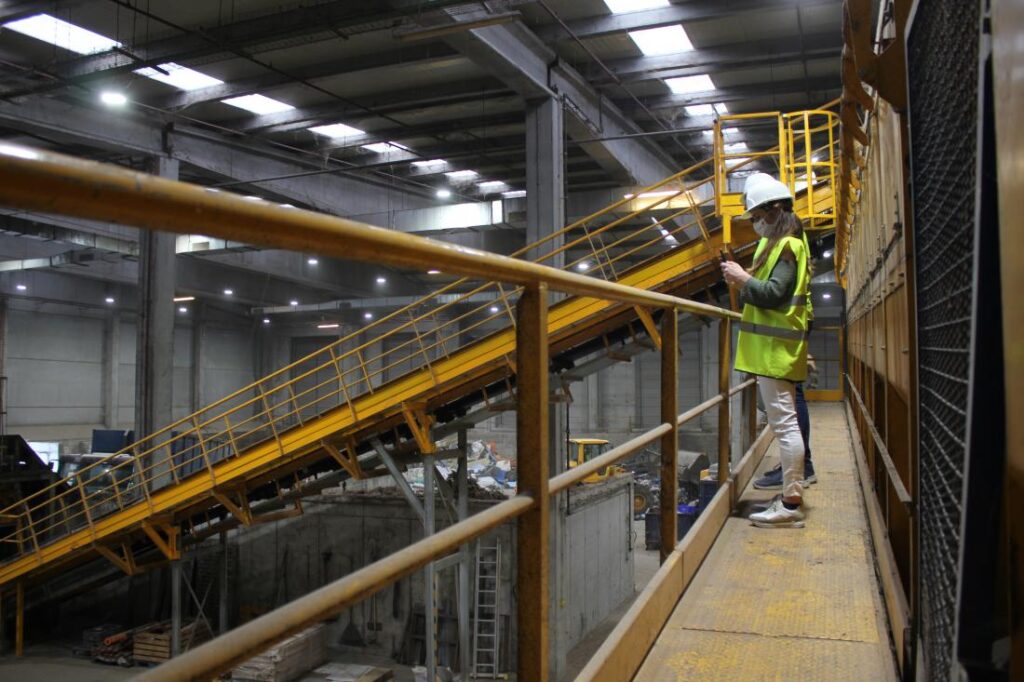 As Med4Waste is getting closer to its final steps, the capitalisation project organised two online events to showcase good practices, experiences and perspectives on sustainable waste management which achieved high attendance and engagement of the participants.
As Med4Waste is getting closer to its final steps, the capitalisation project organised two online events to showcase good practices, experiences and perspectives on sustainable waste management which achieved high attendance and engagement of the participants.
MIO-ECSDE is co-leading the policy dialogue and mainstreaming activities of this ENI CBC Med project and facilitated some of the insightful discussions held.
On the 23rd of May, the day before the 4th UfM Working Group on Environment and Climate Action, a linked back-to-back webinar was organised by the project with the support of the UfM and ENI CBC Med and PRIMA Programmes, focusing on urban organic waste. In line with the International Compost Awareness Week 2023 under the specific theme of “Healthier soil, healthier food…Compost!”, the webinar brought together more than 150 participants from 25 countries from across the Mediterranean region and beyond, to address the challenges and shared solutions regarding urban organic waste management and discuss the ways towards more resilient agricultural systems in the Mediterranean region.
As waste management in many Mediterranean countries has multiple drawbacks that require strategic solutions and collaboration among institutions, the event was a unique opportunity to showcase related results of ENI CBC Med and PRIMA projects on the sustainable use of organic waste.
The webinar was opened by Mr. Almotaz Abadi, Deputy Secretary General of the Union for the Mediterranean, Ms Antonella Giglio, Director General of ENI CBC Med, and Mr. Octavi Quintana, Director of the PRIMA Foundation who all highlighted in their remarks the necessity to overcome silos and adopt a holistic approach to effectively address urban waste management.
In addition, the link to policy areas and transversal initiatives, such as the Sustainable Food Systems in the Mediterranean (SFS-MED) and the Interreg ‘NEXT MED’, the new EU-funded transnational programme, were showcased. Dr. Doha Zamel, UfM consultant, presented important future events such as the 1st Regional Roundtable on WEFE Nexus in the Mediterranean, taking place on 6 and 7 June 2023 in Rabat, Morocco, co-organised by the Global Water Partnership-Mediterranean and the Water and Environment Support (WES) project.
 Mr. Haris Paliogiannis, policy and project manager at MIO-ECSDE and Ms Alessandra Sensi, Head of Sector – Environment, Green and Blue Economy at the UfM, wrapped up the event by summarizing some of the key actions to promote sustainable waste management of resources in the Mediterranean region, in view of its social, economic and political heterogeneity.
Mr. Haris Paliogiannis, policy and project manager at MIO-ECSDE and Ms Alessandra Sensi, Head of Sector – Environment, Green and Blue Economy at the UfM, wrapped up the event by summarizing some of the key actions to promote sustainable waste management of resources in the Mediterranean region, in view of its social, economic and political heterogeneity.
Another Med4Waste event took place online during the EU Green Week, organised every year by the European Commission, and this one focused on the enabling factors to strengthen the capacity of key agents in the waste management chain to deliver the transition i.e., create an ‘enabling environment’, develop the institutional setting, be able to enforce it and thus ultimately lead to reduction in waste volumes in the Mediterranean.
The event was well-attended and was a great opportunity for participants to learn more about the project’s results and those of other projects (Med-INA, SIRCLES, REUSEMED, WES, SIMIL) working on improving waste management practices and governance in the Mediterranean.
 Some examples presented by the project partners were the Med4ZeroWaste & Circular Economy Course, the project’s Massive Open Online Course (MOOC) to share knowledge on local challenges, solutions and initiatives; the ongoing targeted Mentoring Schemes which provide guidance and technical support to six sub-national public authorities in charge of planning, collecting, and managing waste in southern Mediterranean countries; and the pairing scheme between waste management experts and local administration to co-develop solutions for local challenges through tailor-made actions.
Some examples presented by the project partners were the Med4ZeroWaste & Circular Economy Course, the project’s Massive Open Online Course (MOOC) to share knowledge on local challenges, solutions and initiatives; the ongoing targeted Mentoring Schemes which provide guidance and technical support to six sub-national public authorities in charge of planning, collecting, and managing waste in southern Mediterranean countries; and the pairing scheme between waste management experts and local administration to co-develop solutions for local challenges through tailor-made actions.
Indeed, representatives from the municipalities of Deir Qanon ElNaher, in Lebanon, and Mahdia, in Tunisia welcomed the work and efforts of Med4Waste and similar capitalisation projects to provide the necessary tools and platforms to facilitate collaborations between projects, institutions and key stakeholders to share knowledge, good practices and up-to-date research regarding both centralised and decantralised waste management, from the entire Mediterranean region.
The event closed with a round-table with a diverse and experienced panel of speakers including Mr. Anis Ismail, Key Environment Expert of the WES project and Ms Ghada Ahmadein, Technical Coordinator of the Arab Network for Environment and Development (RAED). Panelists shared their insights on how we can effectively support stakeholders for stronger regulatory frameworks and policy incentives on sustainable waste management.
You can watch both Med4Waste webinars and read their agendas following the links below:
- A better urban organic waste management for a more resilient Mediterranean agriculture
- Med4Waste – Agenda of the Webinar – 23.05.2023
- The power of capacity building schemes: moving towards a Zero Waste Mediterranean
- Med4Waste – Agenda EUGreenWeek – 08.06.2023
Read in French here